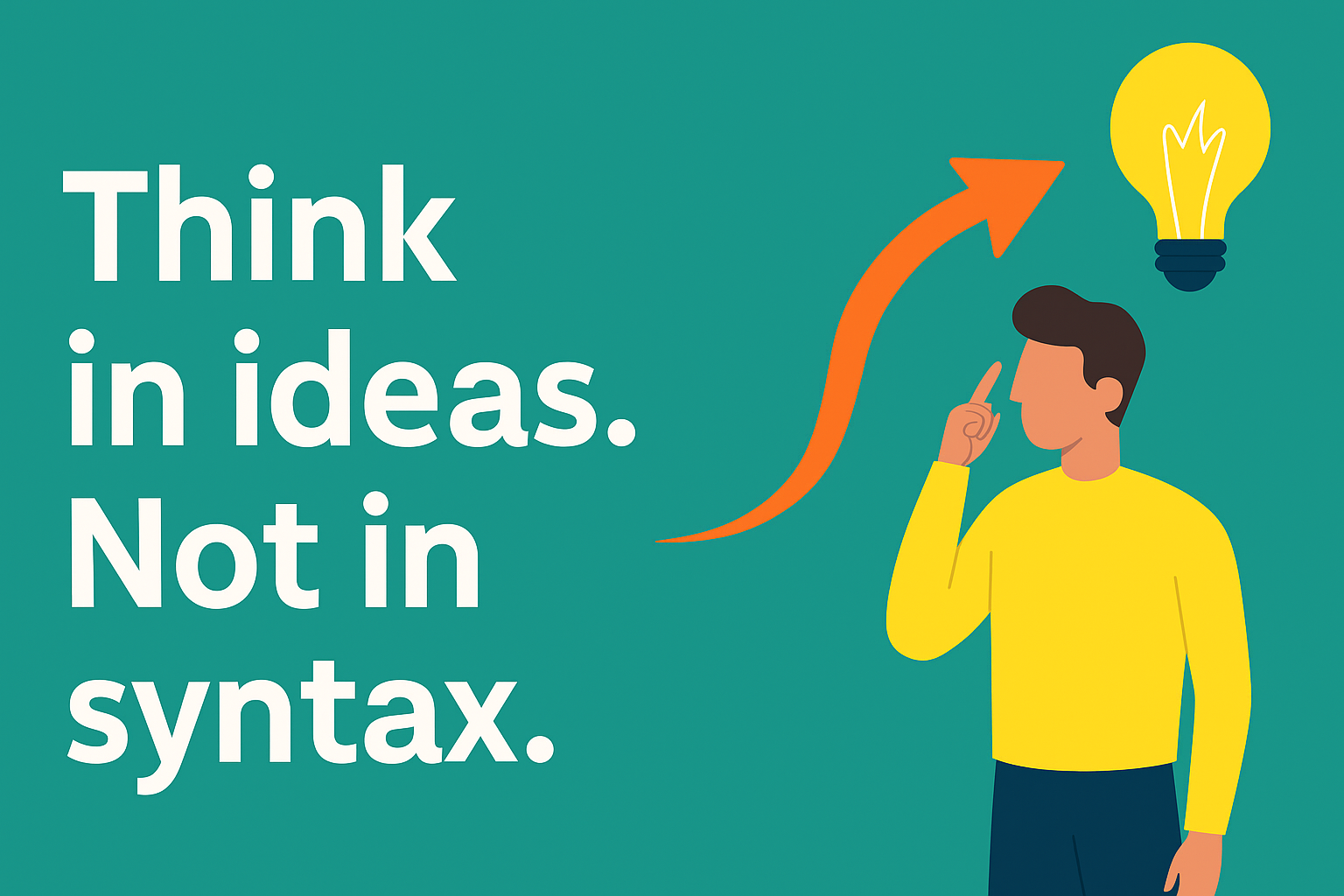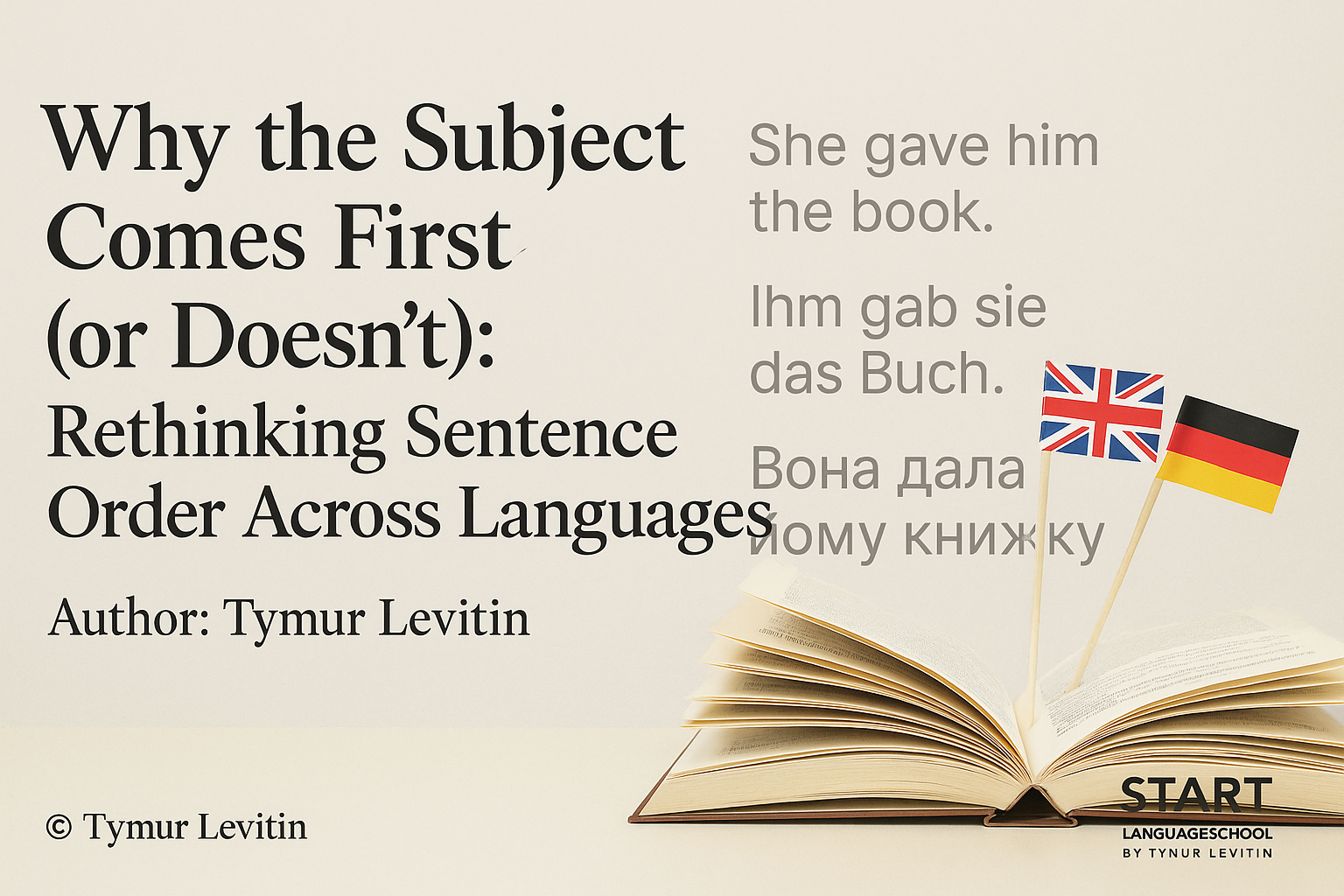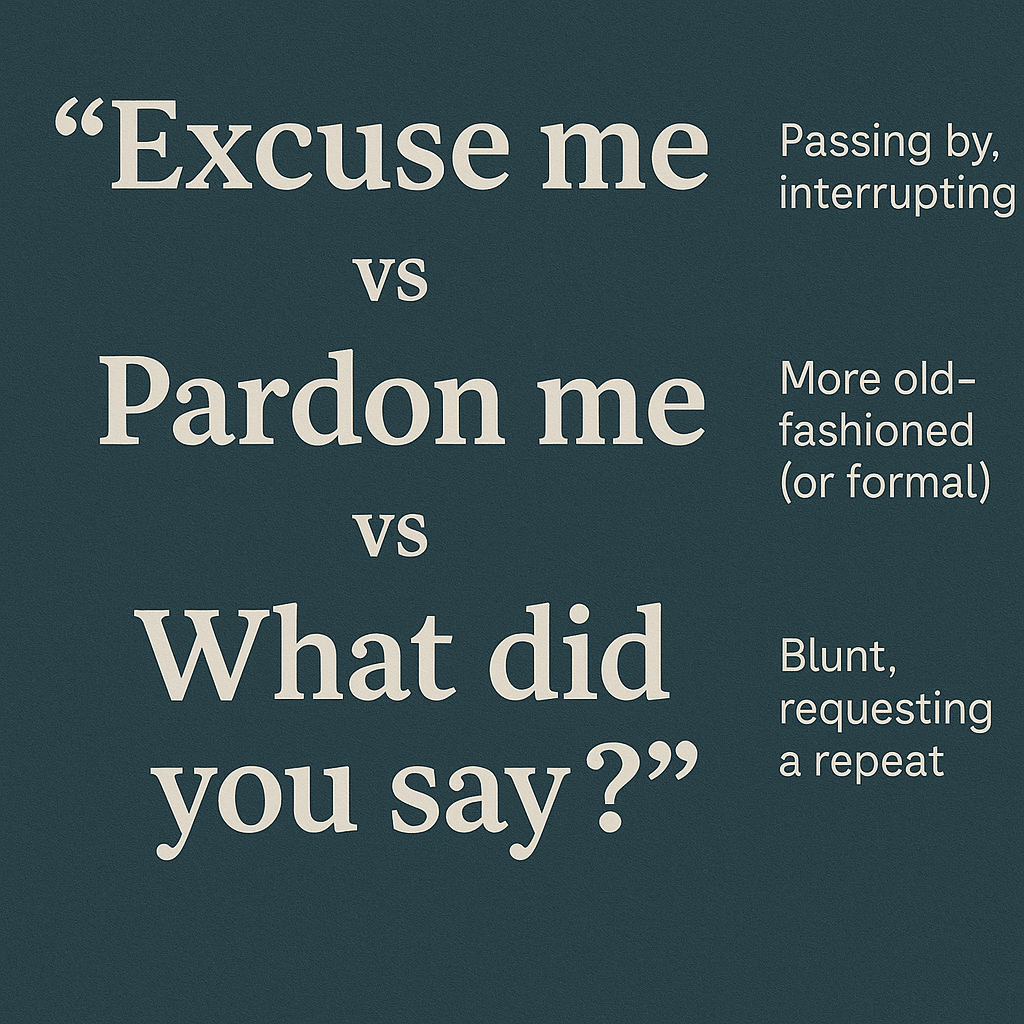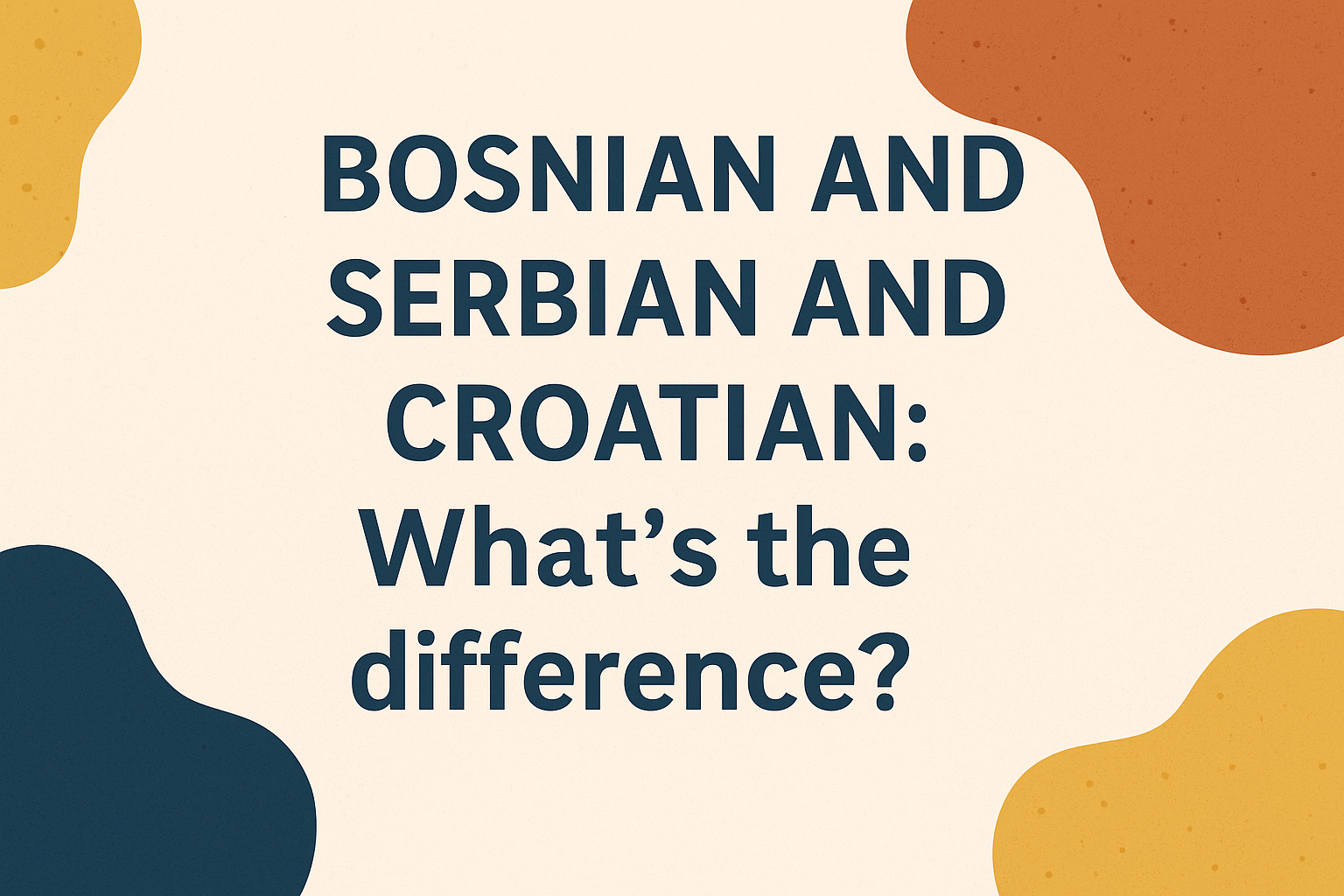Wybierz język: https://levitinlanguageschool.com/#languages
It’s the Same Words — But Not the Same Message
Ask any student of German: “Can one sentence mean five things?”
The confident ones will say: “No, not really.”
The honest ones will say: “I’m not sure.”
The truth? One sentence can have many meanings.
Not because the grammar changes.
But because the intentionw ostrość, and the emphasis shift — and so does the message.
Why German Lets You Reshape the Spotlight
In German, word order is not just about correctness. It’s about point of view.
Think of a sentence like a spotlight:
You decide what gets the light first.
Even if every element stays the same, what you show first changes how people hear it.
Let’s take one simple sentence:
Ich habe ihn gestern gesehen.
(I saw him yesterday.)
Now watch what happens when we change the order:
- Ihn habe ich gestern gesehen.
→ It’s him — not someone else — that I saw. - Gestern habe ich ihn gesehen.
→ I saw him yesterday, not today or earlier. - Gesehen habe ich ihn gestern.
→ Emphasis on the action itself — I saw him yesterday. This could sound more poetic, dramatic, or reflective. - Habe ich ihn gestern gesehen?
→ A question, but still built from the same elements.
All of them use the same words.
But each creates a different picture in the mind of the listener.
Meaning Lives Between the Words
Textbooks often ignore this.
They teach rules, positions, and tables — but forget the listener.
Yet native speakers instinctively know:
- The first word matters.
- The last word echoes.
- The middle holds the rhythm.
In German, all three parts interact.
So when you change the word order, you’re not just moving pieces — you’re choosing how you’re perceived.
What German Actually Teaches You
German isn’t difficult because of its structure.
It’s difficult because you’re asked to choose:
What matters more — the person, the time, the feeling, the fact?
That’s what makes this language beautiful.
And that’s also why it trains your brain to be intentional.
Przy Szkoła językowa Levitin, we don’t just teach word order.
We teach meaning order.
We ask:
- What do you want your listener to see first?
- What feeling do you want to create?
- How can the same sentence say more than one thing?
Because when students understand that, they stop memorizing and start creating.
Learn German as a Language of Intention
We help our students move beyond fear of “saying it wrong.”
Instead, we help them explore:
- how word order affects emotion
- how subtle changes create connection
- how to use grammar to say what you mean, not just pass a test
This is real communication.
And it’s how German becomes not just a language — but a tool for thinking.
🔗 Related reading from our blog:
→ Why German Word Order Makes Sense — If You Look Closer
→ How Emphasis Changes Meaning in German Sentences
📚 Category: Interesting Information
🖋️ Autor: Tymur Levitin
Founder, Director and Head Teacher
Start Language School by Tymur Levitin / Levitin Language School
https://levitinlanguageschool.com/ | https://languagelearnings.com
Learn more about Tymur Levitin
© Tymur Levitin. Wszelkie prawa zastrzeżone.
Niniejszy artykuł i jego treść stanowią własność intelektualną autora i nie mogą być powielane ani rozpowszechniane bez jego zgody.
























